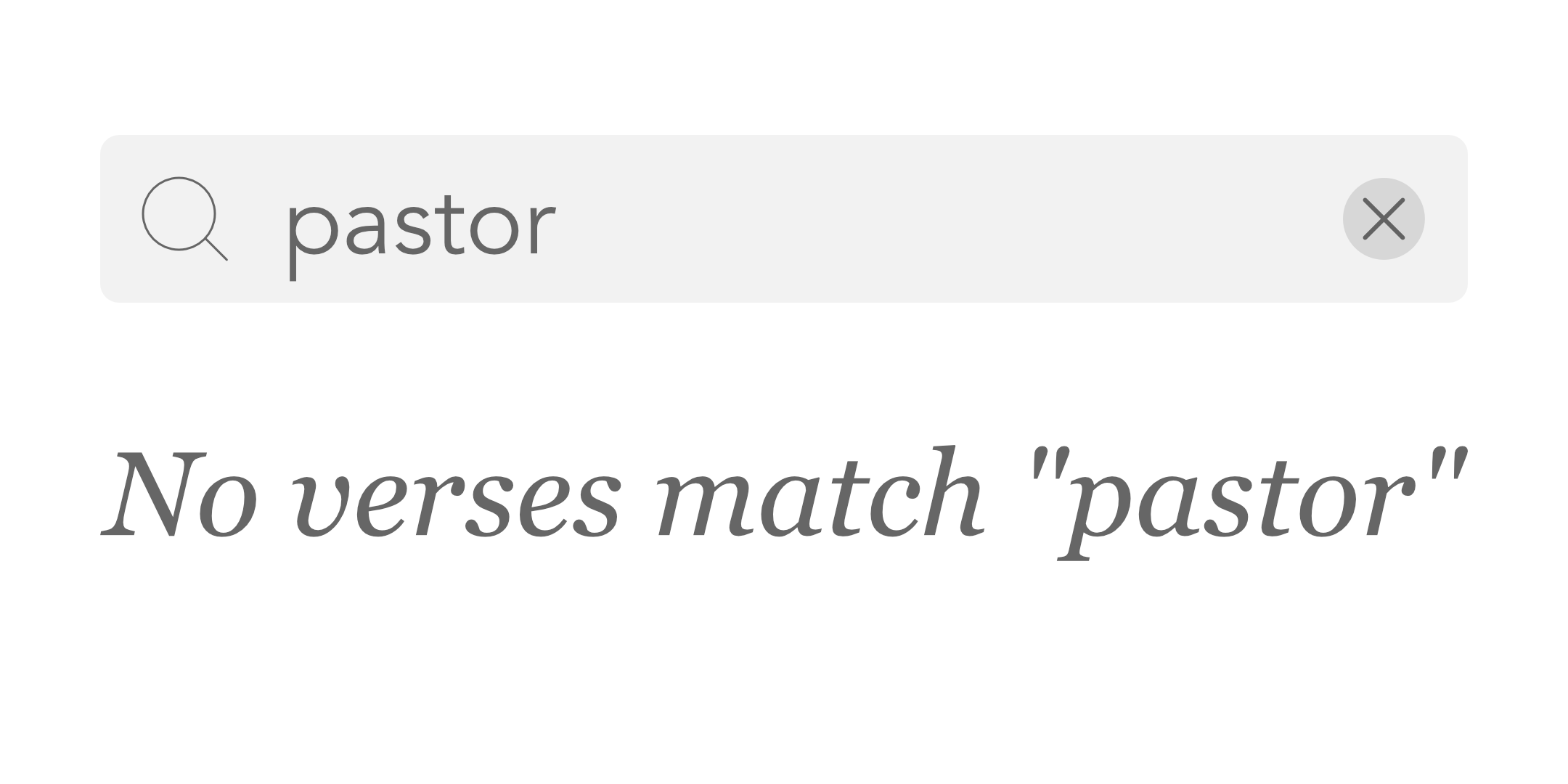Why Are There No Pastors in the Bible?

Every church looks a little bit different depending on the denomination of Christianity they are a part of. Some hold their services in ornate buildings filled with art and stained glass, others in simple buildings with wooden pews, still others in school gymnasiums with folding chairs. Some have strictly regimented services with every word and action repeated identically week after week, while others may only have a general structure that is implemented as seen fit. In addition to these differences of building type or service structure, there can also be a vast difference in the clergy within different denominations, both in title and in duty. Some churches have priests while some have pastors. Some churches have bishops and some churches have presbyters.
Every church that I’ve regularly attended has had a pastor as the primary visible leader of the church. They are the one who delivers teaching during a church service and they are the one you talk to if you have a question or need counseling. Not every Protestant church has a pastor, but many different Protestant denominations do function in this same way.
But if you look at your Bible, depending on which translation you use, you may not see the word pastor appear at all. In some translations it may appear once in Ephesians 4:11, but it is not commonly used throughout the New Testament. Yet what we do see throughout the New Testament are lots of churches. Churches are being founded, churches are being visited, and churches are having letters written to them. But pastors only receive a cursory mention at best. So why do churches have pastors and is there any biblical basis for this practice?
Let us begin with this difference of translation that I mentioned earlier. The translation that I primarily use, the ESV, does not have the word pastor anywhere within its text, but other translations do. The word in Ephesians 4:11 that some versions translate as pastor is the Greek word poimen. This word poimen means shepherd, which is how the ESV chooses to translate it. The English word pastor means shepherd, which is why some other versions use the word pastor in their translation. All this talk of different Bible translations and ancient languages may seem dry and pointless, but the purpose is to show that if we’re interested in whether pastors are biblical, then we can’t just search for the word pastor, but we must look for this idea of a spiritual shepherd.
One of the most notable instances of the word shepherd in the Bible is by Jesus referring to himself. In John chapter 10 Jesus says “I am the good shepherd”, and compares his relationship to us as one of a shepherd caring for his flock of sheep. Like a shepherd, Jesus guides us, directs us, but also knows us intimately, cares for us, and seeks to remedy the pain that we encounter. We as a flock of sheep must accept that the shepherd knows better than us, and from that acceptance flows obedience.
This metaphor of being a spiritual shepherd is used not only for Jesus but also for human leaders within the church. The verse that we’ve already discussed, Ephesians 4:11, uses the term shepherd or pastor to refer to some sort of leader in the church. In Acts 20, Paul instructs church leaders to care for the flock, and in 1 Peter 5, Peter likewise instructs church leaders to shepherd the flock. While Jesus is the chief shepherd, these church leaders are also shepherds that are called to, like Jesus, guide, direct, and care for the members of their church, who are their flock.
So it is clear that shepherding (or pastoring) the congregation is a duty expected of leaders in the church. But the Bible has more to say about the other responsibilities of those leaders and what they are called. If we look at those passages in Acts 20 and 1 Peter 5 that I mentioned earlier, the leaders in the church that are being addressed are specifically called elders. Wherever we see church leaders being mentioned in the New Testament, we see them being called elders or overseers (bishops). These are two different titles for the same position, as we see them being used together in Acts 20 and 1 Peter 5, as well as in Titus 1 which describes the qualifications for such a position.
The qualifications for elders found in Titus 1 as well as in 1 Timothy 3 emphasize moral uprightness and integrity. An elder should be faithful to his wife, raise his kids to follow God, and have no stain upon his character that would compromise his leadership of the church. But most importantly, he must be able to teach correct doctrine and rebuke false teachers. This is the most important qualification because it is the elder’s most important responsibility. While shepherding the congregation is necessary, the correct teaching of God’s word is of primary importance.
Jumping back to the structure of modern churches, most churches that have a pastor also have a board of elders that oversee the pastor. I am unable to speak for every church, but usually these elders are leaders from among the congregation that have their own jobs outside of the church. Being an elder is not their job, it is a volunteer position they take up with their free time. Just as these churches were structured in the Bible, these elders ought to be the spiritual leaders of the congregation, shepherding, overseeing, teaching, and rooting out false doctrine. If we think about the responsibilities and duties of a pastor in a modern church, we recognize that he is a spiritual leader of the congregation who shepherds, oversees, teaches, and roots out false doctrine. So what we call a pastor is really in fact an elder according to the Bible.
The reason for a difference in title, elder versus pastor, comes from a difference in career. Pastors that are hired by a church are able to commit many more hours towards their duties of teaching and shepherding the church than those elders that volunteer their time in addition to their jobs. It would be right to call pastors “vocational elders”, those who serve as elders as a career rather than as a volunteer. This difference in time is why pastors are more often the visible leaders of the church to the congregation. Elders and pastors both have the same spiritual authority to lead and shepherd the congregation. Both are biblical elders tasked with knowing true doctrine and correcting false doctrine. Administratively however, it makes sense that the elders would have authority over a pastor since a hired pastor cannot make decisions regarding their own payment, discipline, or firing.
Unfortunately, there are some churches with pastors and elders where this order is reversed. The elders are chosen by the pastor so that the pastor has ultimate authority in the church. The church is meant to be overseen by multiple elders and not just one person. We see the consequences of this improper church structure in the outcomes of these churches. Often they fail because the pastor abuses their authority, or they continue very successfully, if success means raising disciples of the pastor rather than disciples of Jesus.
Elders are not required to teach, as seen in 1 Timothy 5:17, but they must be able to teach. They must be able to defend sound doctrine and guide the church based on correct interpretation of God’s word, but they do not necessarily need to be involved in the teaching ministry of the church. Most churches hire a pastor to handle this duty of teaching, as they have often gone to school to specifically train this skill of teaching the Bible. Some churches have enough resources to hire an additional pastor that does not teach, such as a pastor more involved in shepherding and counseling often times called a care pastor. Biblically this is fine, as elders are not required to teach, but they still must meet the requirements of an elder laid out in the Bible, which includes handling the word of God properly.
The names we give things are much less important than what they actually are. There is no biblical issue with a church having a position called pastor, as long as the church understands that biblically they are an elder and uses the biblical qualifications for an elder in establishing whether they are fit for the role. The pastor and elders together must act as the spiritual leaders and shepherds for the church, even if they are not able to devote the same amount of time towards this task. Most importantly, all of it should be done under the guidance of Jesus who is our chief shepherd.
